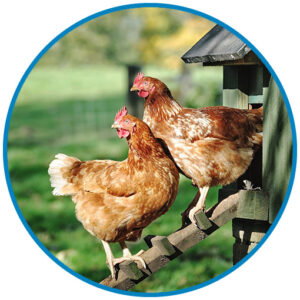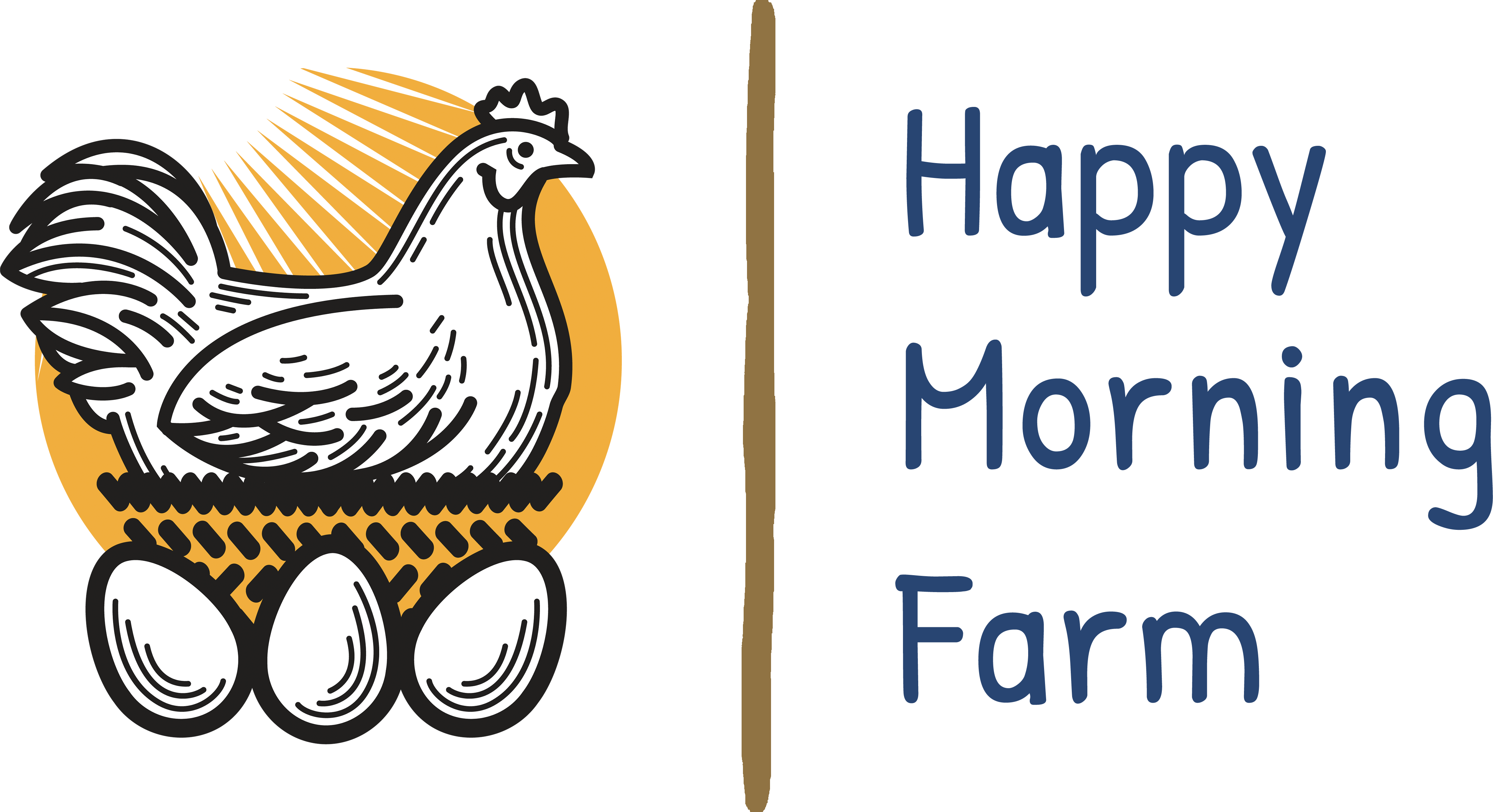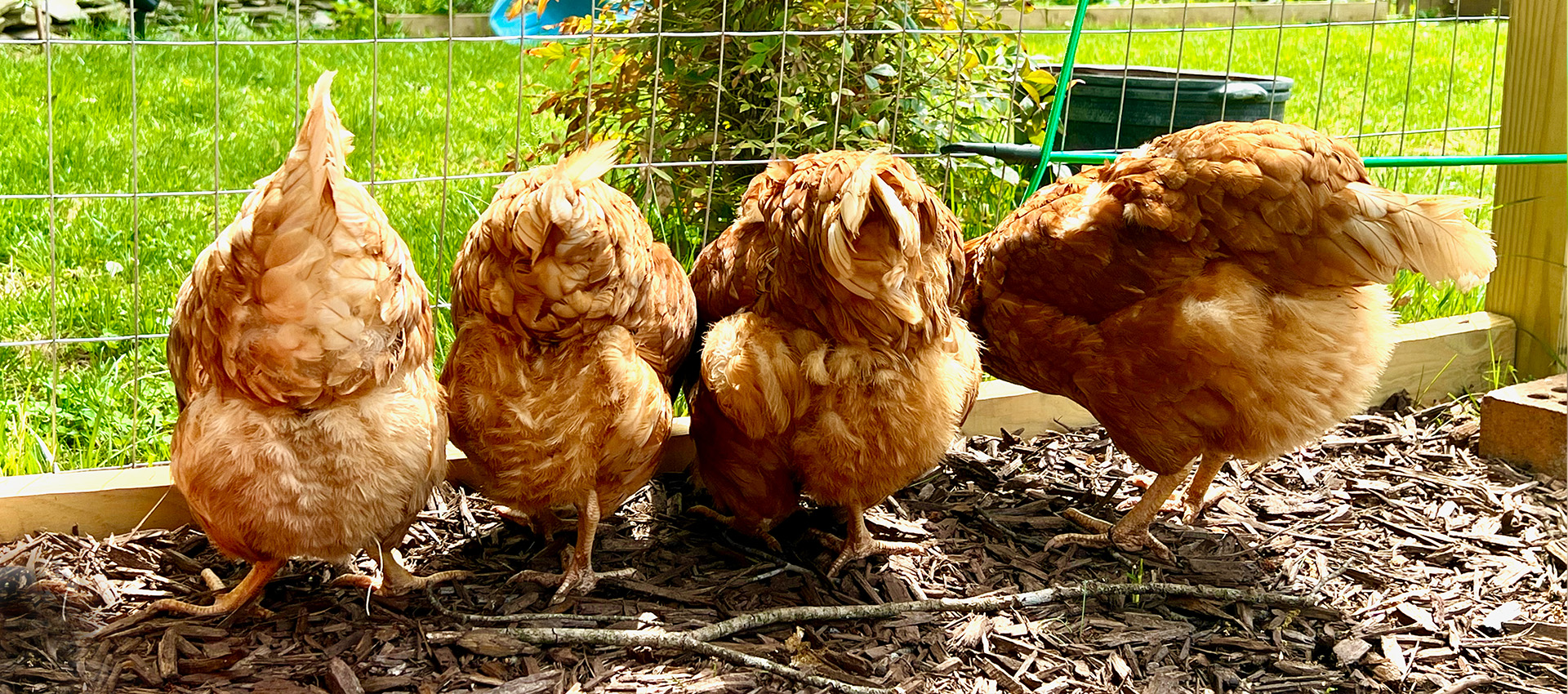
Our small backyard flock of chickens are part of our family — meaning they’re treated like the pets that poop breakfast (we don’t eat them). When they’re not out roaming free, scratching and pecking and snatching up any bugs they find, they’re giving us nearly a dozen eggs a day!! Each one of our happy hens has a colored leg band that lets us tell them apart (since many are the same breed and look alike). Here are some our hens!
We currently have several breeds: Red Star, Easter-Egger, Rhode Island Red, Buff Orpington, Plymouth Barred Rock, and Sapphire Gem.

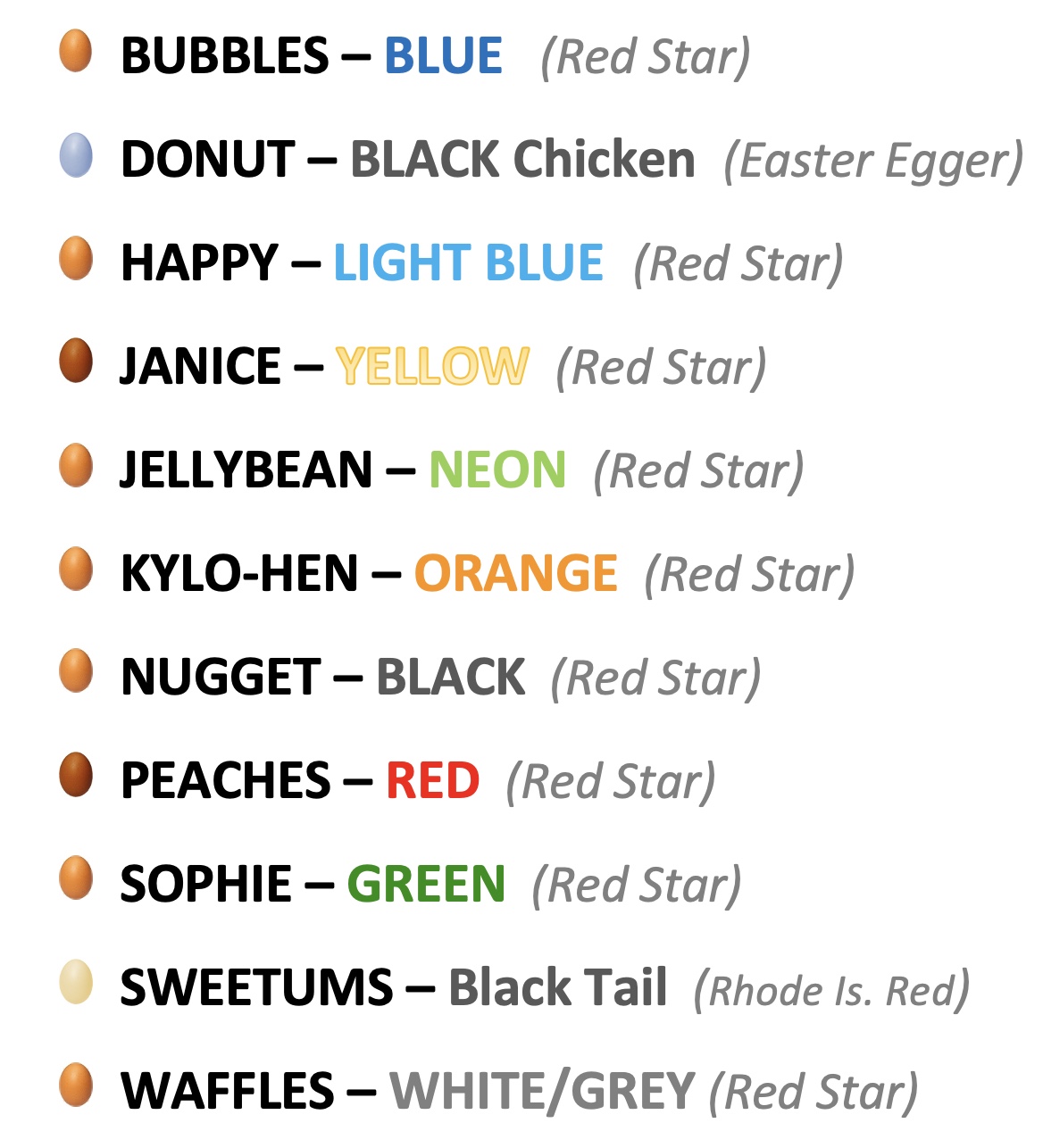
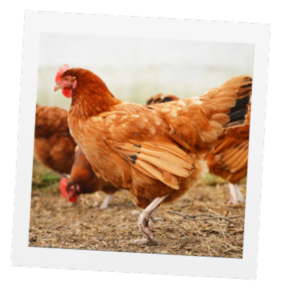 Our chickens spend their time outside under blue skies because that gives them the freedom to just be chickens. When chickens have room to roam, they’re healthier because they get to act and live in ways that come naturally to them.
Our chickens spend their time outside under blue skies because that gives them the freedom to just be chickens. When chickens have room to roam, they’re healthier because they get to act and live in ways that come naturally to them.
Our chickens behave like, well… chickens! There are five main behaviors that chickens engage in to stay as healthy as they can be, and we make sure they’ve got everything they need to do that. Those behaviours are perching, dust bathing, scratching, pasturing, and socializing. Let’s learn more about each behaviour!
Perching
Chickens love their downtime, and free-living hens will roost on perches all night long. Perching chickens have stronger bones, and a more robust immune system.
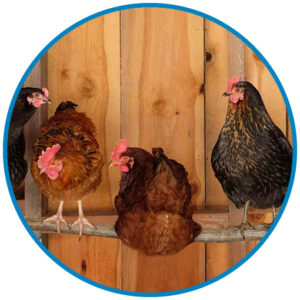
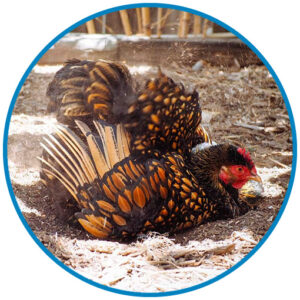
Dust Bathing
There’s nothing as luxurious to a chicken as a dust bath. Flapping around in the dust helps chickens clean their feathers and rid themselves of parasites.
Scratching
When you see a chicken scratching at the ground with her feet, you know you’re looking at a healthy bird. Chickens scratch the ground in a backwards motion to explore their surroundings. Scratching the ground also keeps their claws at a natural length.
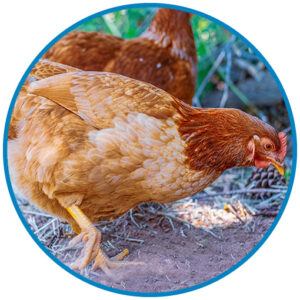
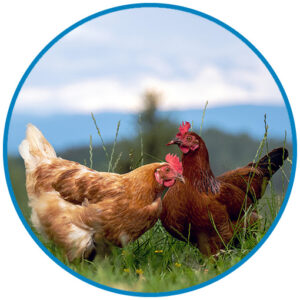
Pasturing
Pasturing has been a natural part of chicken life for thousands of years, and we’re not going to stop them now. Pasturing provides fresh air, vitamin D, and builds the immune system.
Socializing
In the wild, there’s strength in numbers for a chicken, so they are inherently social animals. Socializing gives them others of their kind to count on and to mimic.
